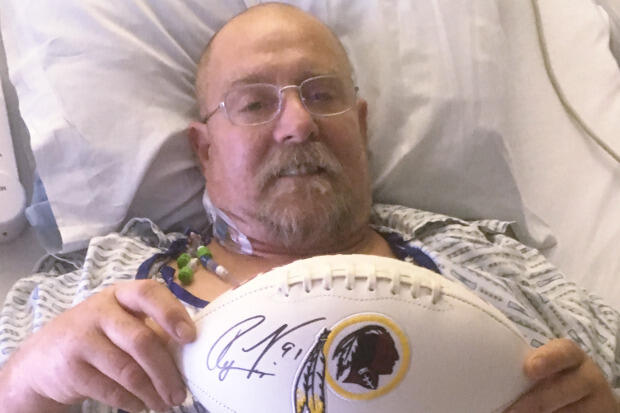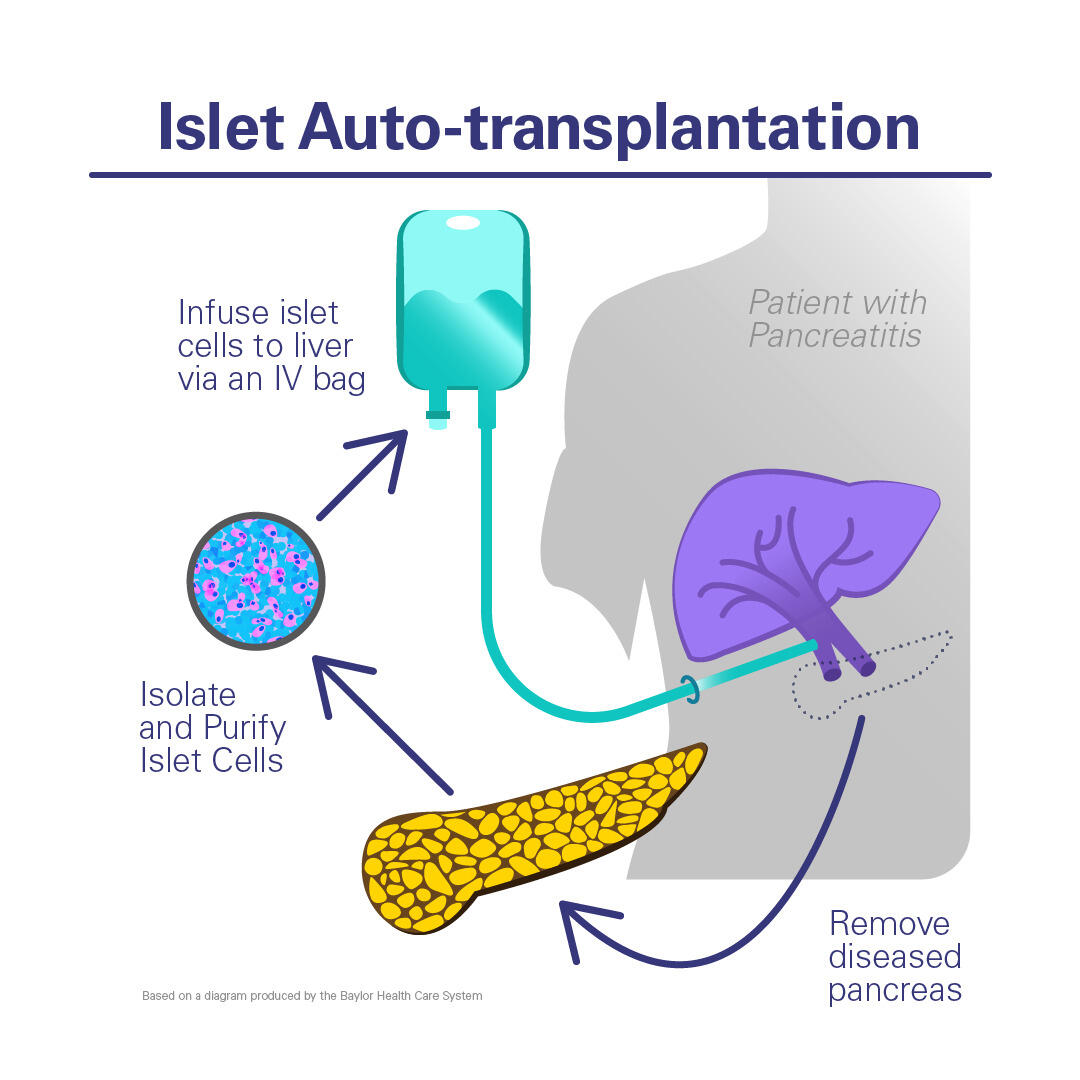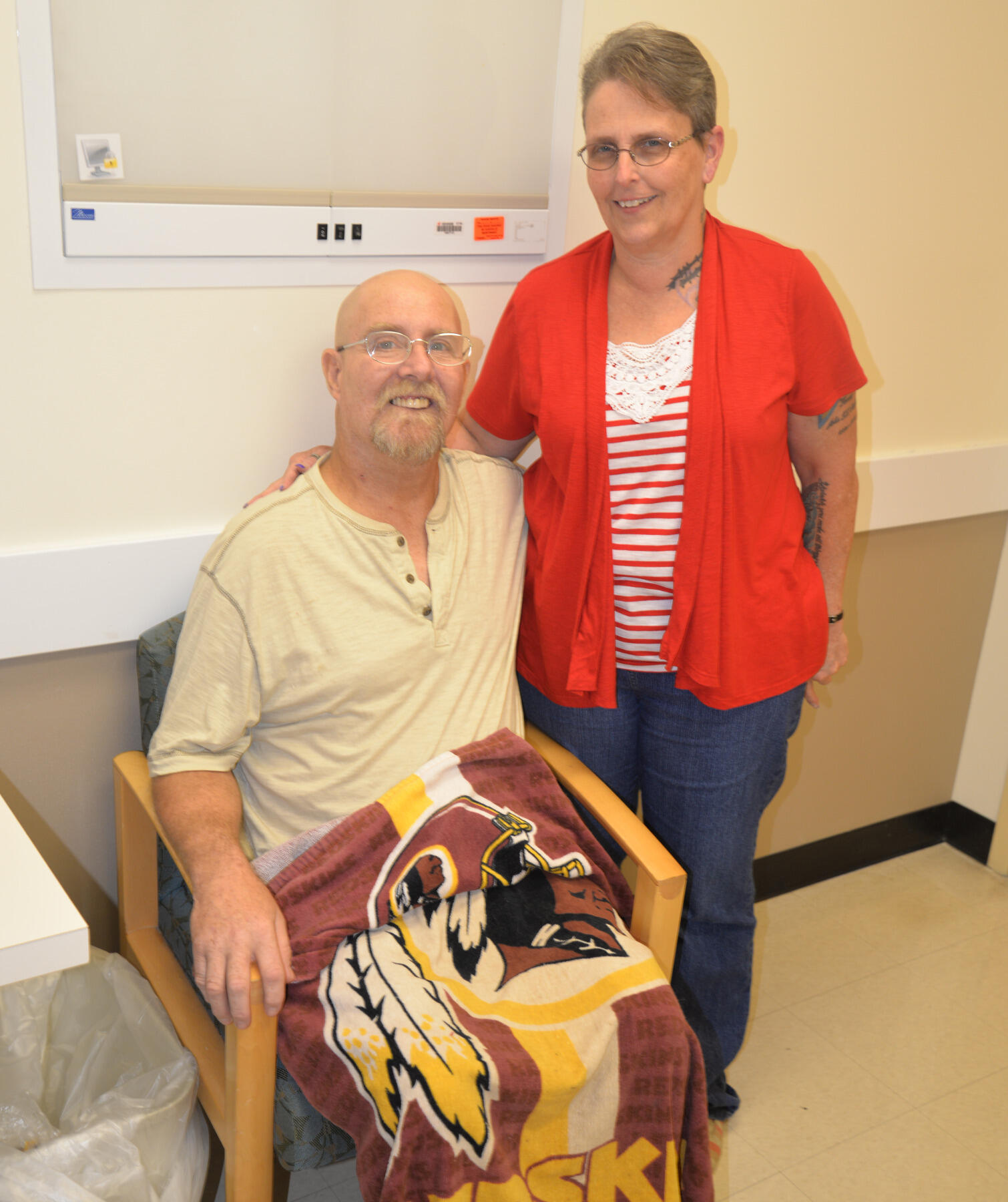
Aug. 26, 2016
Chronic pancreatitis patient says VCU Health is ‘the way to go’ for surgery
Share this story
It was all by happenstance.
As a family nurse practitioner, Becky VanderStouwe can attend dinners that serve as speaking opportunities for doctors to promote their specialties, and the services they offer. In March, she attended a Williamsburg meeting about gastroenterology, thinking it would be of interest only because of her work in a gastrointestinal medical practice.
The meeting proved much more beneficial than she originally thought.
The presenter that night was Marlon Levy, M.D., chair of the Division of Transplant Surgery in the Department of Surgery at the Virginia Commonwealth University School of Medicine and director of the VCU Health Hume-Lee Transplant Center. He was discussing a procedure offered at Virginia Commonwealth University Medical Center called islet cell auto-transplantation, which has a more than 90 percent success rate of curing chronic pancreatitis.
That was music to VanderStouwe’s ears. Her brother, Andrew Keener, had been suffering with chronic pancreatitis for seven years.

“I just thought, ‘Oh, I’ll go to the meeting to see what he has to say,’” VanderStouwe said about her initial permissiveness to attend. “But, once [Levy] started talking about the ways he could help and the things he could help with, he was describing my brother to a T,” VanderStouwe said. “After that meeting, I emailed Dr. Levy and he responded very quickly.”
She shared the information with her brother. In April, Keener began his pre-evaluation process for surgery. He had islet cell auto-transplantation surgery July 27 and is healing well. He attributes the surgery to his newfound excitement about the future.
“I have pain from the surgery, but I know that will go away,” he said. “I’m looking forward to going back to work and getting back in the saddle with my grandkids. I think if you’re going to do something like this [surgery], VCU is the way to go.”
‘The way to go’
VCU Health is the first and only hospital to bring islet cell auto-transplantation to the Richmond Metro area, and is the only hospital in southeast Virginia that offers it to patients. The procedure became an option for VCU Health patients this year, soon after Levy took the helm of the Division of Transplant Surgery and the Hume-Lee Transplant Center. He has a long career performing the procedure, which includes serving as medical director of the Islet Cell Transplant Program for Baylor Health Care System.
The procedure involves removing a patient’s diseased pancreas, extracting its islet cell clusters (cells that produce insulin) and placing them inside the patient’s own liver, which then begins to yield insulin. Patients with chronic pancreatitis experience inflammation of the pancreas that persists and worsens over time causing pain, nausea and sometimes resulting in diabetes. One essential part of the procedure includes having a secure and sterile islet lab. VCU Health’s lab is a five-minute drive from where surgeries are performed, and is headed by Assistant Medical Director Mazhar Kanak, Ph.D.

Once an islet cell auto-transplantation procedure is performed, there is a delicate, time-sensitive handoff that occurs, he said.
“The transplant surgeon procures the pancreas from a patient and hands it to the islet isolation team. We carefully clean the pancreas and under sterile conditions carry it to the islet lab where the cells will be extracted,” Kanak said. “It is not entirely possible to perform a successful procedure without an islet isolation lab close by. The time of pancreas processing is very critical. Longer processing time or transportation time results in poor islet recovery from the organ, and also results in poor quality of the isolated islets. Therefore, having an islet isolation lab close by makes sure excellent quality islets are recovered from the pancreas and excellent treatment is provided to the patient.”
Keener is the first person to undergo the procedure at VCU Medical Center and said everything from his surgery to his hospital experience have been stellar. After the islet cell auto-transplantation procedure, patients usually spend eight to 10 days hospitalized.
“From the nurses all the way to those in food services, they have been very nice and polite,” he said.
During Keener’s time recouping, one hospital staffer in particular went the extra mile to lift his spirits. Knowing of Keener’s love for the Washington Redskins, Genevieve Hobbs, an islet cell auto-transplantation program nurse coordinator, stood in line at the Washington Redskins Training Center in Richmond, to get Keener a ball autographed by linebacker Ryan Kerrigan.
“That sure brings a smile to your face when you’re lying there hurting,” Keener said.
And even though Levy is a Dallas Cowboys fan, Keener laughs, his surgeon’s demeanor has made them comrades.
“He’s the best doctor I’ve been to,” Keener said. “He’s like your next door neighbor.”
Throughout the region
During his pre-evaluation process and throughout his hospitalization, Keener’s wife of 37 years, Barbara, has served as his chauffeur for the 90-minute commute to and from their Hampton residence. Still, the drive to Richmond is nothing compared to the expedience with which her husband has received treatment. Seeing her husband agonize and be out of work and immobile for so long was hard, she said. Now that the islet cell auto-transplantation procedure is available at VCU Medical Center, she is hopeful for others with chronic pancreatitis.
“We’re hoping people don’t have to wait as long as he did and suffer as long as he did,” she said.
As VCU Health continues to revolutionize its offerings, Levy is optimistic about availing the procedure to those throughout the region.
“We are so thrilled that this innovative program has gotten off the ground at VCU,” Levy said. “The team has performed exceptionally well. We are delighted to be able to offer these services to the patients of central Virginia and the whole Mid-Atlantic.”
Subscribe to VCU News
Subscribe to VCU News at newsletter.vcu.edu and receive a selection of stories, videos, photos, news clips and event listings in your inbox.









